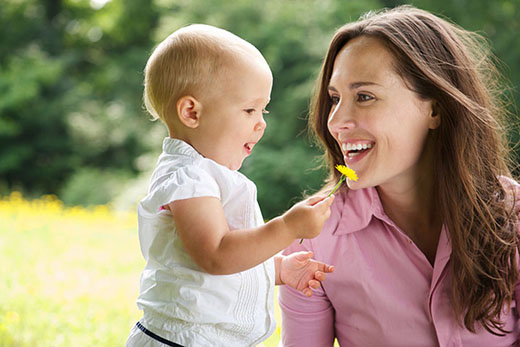Language Development
Children's Service Areas

What therapy looks like: 18 months
Language development has two parts: understanding words (receptive language) and speaking words (expressive language) according to a system of rules.
Receptive Language: A child who has difficulty understanding the meaning of words (vocabulary) and the rules for putting the words together (grammar) is said to have a receptive language delay. These children often have difficulty following directions and/or learning tasks.
Expressive Language: A child who has difficulty using appropriate words (vocabulary) and speaking these words in the correct order (grammar) is said to have an expressive language delay. These children often sound younger than their age.
Language Development Norms
18 months
Expressive
- minimum 10 words
Receptive
- approximately 100 words
- follows simple instructions
2 years
Expressive
- approximately 200 words
- produces 2-3 word sentences
- asks “what’s this, “where’s my”, questions
- uses 2 word negative phrases (e.g., “no want”, “not go”)
Receptive
- follows 2 step instructions
- identifies body parts
3 years
Expressive
- approximately 1000 words in spoken vocabulary
- conversational speech, sentence length 3-4 words
Receptive
- follows 3 step instructions
- answers “Who”, “Why”, “Where”, “How many” questions
4 years
Expressive
- approximately 1500 words
- uses regular and irregular past-tense
- uses contractions “it’s a” or “there’s a”
- sentence length 4-5 words
- uses the word “will” (future tense)
Receptive
- identifies primary colours
- identifies basic shapes
- follows instructions even though objects not present
5 years
Expressive
- approximately 2000 words
- sentence length 5-6 words
- uses all pronouns
Receptive
- understands spatial relations “on top”, “behind”, “far”, “near”
- understands common opposites



